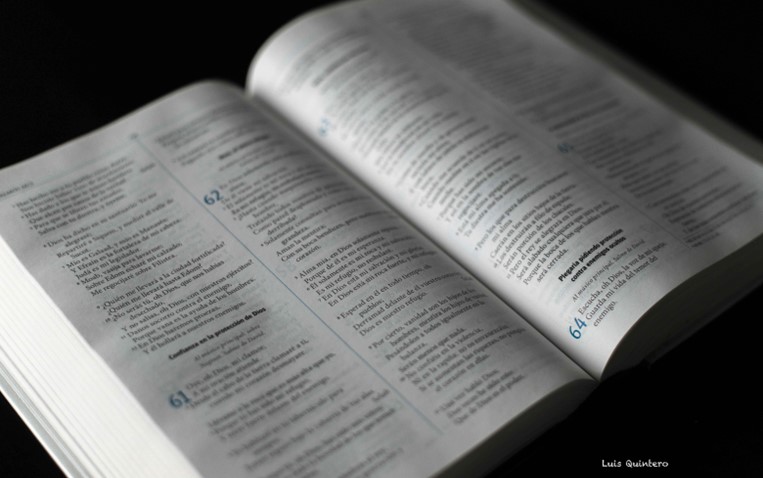We’ve all been or felt judged at some point. Judged is a common circumstance for the vast majority. And depending on our level of healthy self-esteem, some of us feel under constant judgment.
Judgment is also a frequent topic in scripture. The word judgment appears over 400 times in various contexts. Judge appears over 450 times. Judging is clearly an important topic. But no one wants to be judged unless it’s favorable and there’s a prize at the end.
So what is the prize? And what are the contest rules?
First, judgment implies power over the judged. Otherwise, judgment is an academic exercise, which it more often is any way. Ultimately, God is the only power that matters. But it doesn’t seem that way, does it?
Judgment also needs a yardstick. Some standard to measure against. And the standard must be achievable by the judged. Otherwise, judgment is oppressive.
There’s another factor deserving consideration. Is the judge held to the same standard as the judged? If so, does the judge consistently meet or exceed the standards, or is hypocrisy taking place?
Last, what happens when we deserve the judgment? Is forgiveness possible? Is forgiveness conditional? If so, what are the standards for forgiveness to be possible?
No wonder life feels so complicated.
When I first realized the possibility that God created me to fill the role of pastor, judgement seemed to pollute the very air around me. My inner child needed convincing of my worthiness. But what standard determines this?
I received a piece of advice from on the clergy at the church I attended. A candidate for ministry must be beyond reproach. Her overall message was condemning. This isn’t you!
There is a word I learned years ago that has the power I needed to respond to God’s call in my life. Grace. I learned about this word during a near-death experience almost two decades before.
Grace is unconditional and unearned forgiveness.
Fr Richard Rohr sets forgiveness and judgment in proximity to one another. “Without a forgiveness great enough to embrace even the obscure side of things, we are burdened (and I do mean burdened) with our own need to explain and to judge everything.”
The Old Testament uses the language of clean and unclean to distinguish between the sacred and the less sacred. These same labels are then applied to animals, people and situations. A person becomes unclean in the ordinary pursuit of life, requiring a special ritual before engaging the sacred.
The sacred relates exclusively to God. Everything else belongs to the secular world.
Fr Rohr notes, “The false sacred can be spotted because it is always self-serving and other destroying. The insecure and false self seems to need an enemy to scapegoat so that it can feel superior and saved. False gods, by definition, must be appeased. The true God needs nothing.”
This concept drips judgment. And religious systems, even if these words never appear in doctrine, organize around clean and unclean, sacred and not sacred, righteous and unrighteous, saved and unsaved. And so on. Judgment!
Jesus had something different in mind. Jesus offers an alternative. And He lays His plan out in a familiar monologue known as the Sermon on the Mount. This week’s text includes what Jesus said about judgment in His sermon.
The Good News Translation offers this version: “God will judge you in the same way you judge others, and he will apply to you the same rules you apply to others. As insightful as this statement is, it’s tempting to jump to conclusions too quickly.”
God will judge you in the same way you judge others, and he will apply to you the same rules you apply to others…
Matthew 7:2
Jesus also said, “How dare you say to your brother, ˜Please, let me take that speck out of your eye,’ when you have a log in your own eye?” Ouch! More insight yet only scratching the surface of the alternative.
Welcome to our post-Easter series titled, The alternative. Over the next few weeks, we’ll touch on several of the parts of Jesus’ sermon, but focus mostly on context.
In our companion book, Fr Rohr, goes to great length providing context for finding the alternative Jesus offers in His sermon. Otherwise, our religious baggage blinds us, and we’re stuck running with the parts that suit us and ignoring those that don’t.
You can join us each Sunday in person or online by clicking the button on our website’s homepage – Click here to watch. This button takes you to our YouTube channel. You can find more information about us on our website at FlintAsburyChurch.org.
A reminder that we publish this newsletter that we call the Circuit Rider each week. You can request this publication by email. Send a request to connect@FlintAsbury.org or let us know when you send a message through our website. We post an archive of past editions on our website under the tab, Connect – choose Newsletters.
Pastor Tommy
Parts of our series was inspired by Fr. Richard Rohr. Jesus’ Alternative Plan. Cincinnati: Franciscan Media, 2022.

